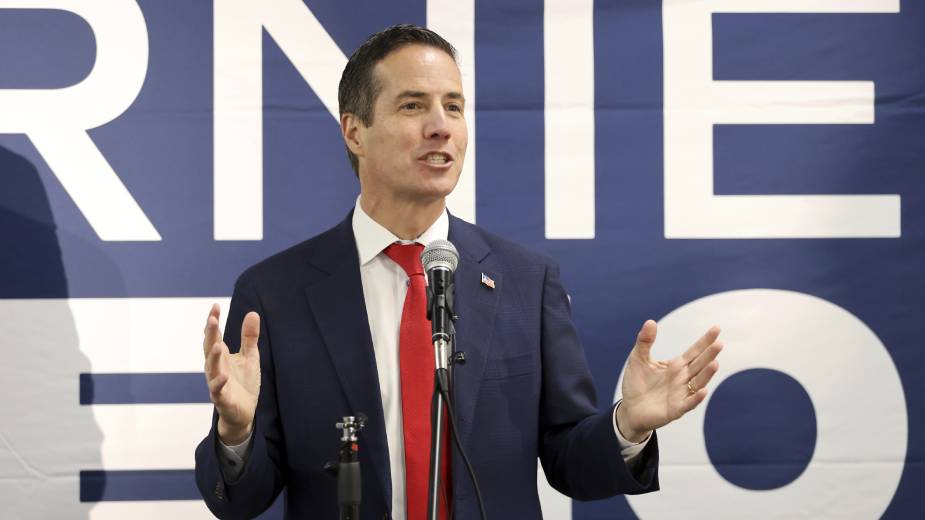Senators, Reps Respond to Senate Health-Care Bill
YOUNGSTOWN, Ohio — Thursday’s release of the latest draft of health care legislation to replace the Affordable Care Act appeared to bring no further clarity to the national political debate.
Nor did it – at least as of yesterday – bring any clarity for U.S. Sen. Rob Portman, who remained uncommitted as to whether he would support the latest version.
The legislation, unveiled by Senate Majority Leader Mitch McConnell, includes provisions that would add $45 billion to fight opioid addiction and an additional $70 billion for states on top of $112 billion as reflected in the original proposal, as well as funding to address higher insurance costs for low-income individuals.
Another provision would let insurance companies sell inexpensive plans that don’t conform to the Affordable Care Act’s Standards as long as the companies sell one policy that does.
In a statement on his website, Portman, R-Ohio, said he would review the legislation as he did the previous version and awaits the Congressional Budget Office’s analysis. Portman was part of a working group that discussed different aspects of the earlier bill which, like yesterday’s version, was drafted by the Senate GOP leadership.
“I opposed the last draft of the Senate health proposal because I had concerns about the measure’s Medicaid policies, especially those that impact drug treatment for those suffering from addiction,” he said. “I’ve also consistently said that the Affordable Care Act isn’t working for many Ohio families and small businesses whose premiums and deductibles have skyrocketed, and choices have disappeared as health insurance plans have left Ohio.
“As this process moves forward, I will continue to work with my colleagues to ensure that our health care system works better for all Ohioans,” he said.
U.S. Sen. Sherrod Brown and U.S. Rep. Tim Ryan came out against the bill shortly after it was unveiled.
In a news release, Brown, D-Ohio, said the bill would gut the expansion of Medicaid supported by Ohio Gov. John Kasich, the state’s No. 1 tool in combating the opioid crisis. In addition, he said, the legislation lets insurance companies again discriminate against people with pre-existing conditions and charge individuals ages 50 to 64 up to five times more.
Brown said he is ready to work with Republicans to lower costs and to make health care work better, but that isn’t what this legislation does.
“Last week in Cincinnati, I sat across from a man who told me that without the Medicaid expansion, his daughter would have died from an opioid overdose,” Brown said, one of several examples he offered.
“How can a bunch of Washington politicians with taxpayer-funded health care look these people in the eye and tell them, ‘We’re going to let insurance companies refuse to cover your child’s care?’ How can they say, ‘We’re gutting the best tool we have to combat the opioid crisis?’ How can they raise costs on hard-working people just because they turn 50?”
Ryan, D-13 Ohio, called the legislation a “cruel betrayal of the American people” and urged senators to work in a bipartisan manner with Democrats to expand access to affordable, high-quality health care. He is “particularly dismayed” at Republicans’ “disingenuous inclusion” of the $45 billon for the opioid fight, money that otherwise would be welcomed if not for the $772 billion cut to Medicaid, the “single largest provider of addiction treatment and recovery services,” Ryan said.
“All it took was an amendment by Sen. Ted Cruz (R-Texas) throwing people with pre-existing conditions under the bus and a pitifully small amount of additional funding for opioid addiction, and just like that, Senate Republicans were somehow able to make their disaster of a healthcare bill even worse,” he said. “They can tinker around the edges all they want, but it won’t change the fact that Trumpcare is nothing more than a massive tax cut for the wealthiest among us, financed on the backs of the elderly, people with preexisting conditions, and the poor.”
U.S. Rep. Bill Johnson, R-6 Ohio, said in response to a request for comment that he hadn’t had the opportunity to review the legislation because of votes and constituent meetings.
“I’m encouraged that the Senate is still working on this important issue, and that they’re rolling their sleeves up and trying to get it done,” Johnson said. “Obamacare is collapsing all around us, and the Senate needs to act to ensure all of our citizens have access to quality, affordable health care.”
In Pennsylvania, U.S. Sens. Bob Casey and Pat Toomey reacted along party lines.
The latest version of Republicans’ “scheme” still sells out the middle class, seniors, children and individuals with disabilities, said Casey, a Democrat. He added the bill remains “a bailout for special interests” and he pledged to fight it.
“The revised Senate bill is more extreme than the last version because it includes a loophole to allow insurers to end protections for those with pre-existing conditions and end coverage of basic medical services like maternity care,” he said.
Toomey, a Republican, said the new draft prevents ACA’s “imminent collapse.” While he supports the draft in its current form, he concedes it isn’t perfect and lamented that it abandons the commitment to repeal all of the taxes under ACA.
“Additional changes to increase competition and choice in the individual insurance market will help to make coverage more affordable and accessible for the thousands of Pennsylvanians who have seen their premiums skyrocket under Obamacare,” Toomey said. “In the coming days, I will thoroughly examine this draft and welcome the thoughts of my colleagues, constituents, and advocacy groups who hope to make constructive progress on this issue.”
Copyright 2024 The Business Journal, Youngstown, Ohio.



